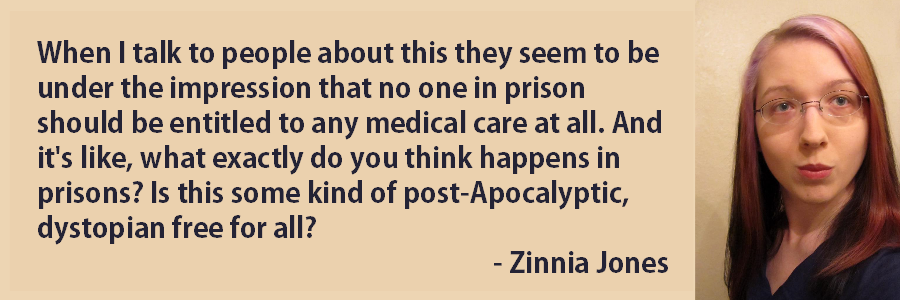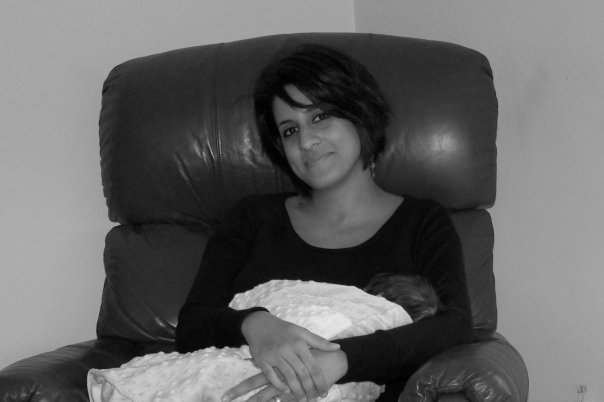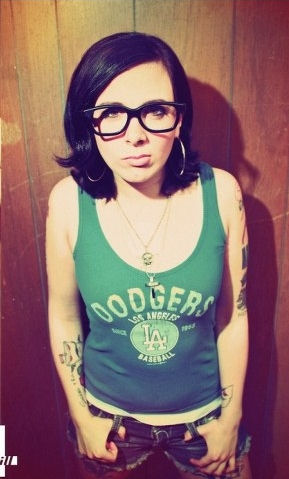Black NonBelievers (Mandisa Thomas, President) and Judith Moore recently sponsored an event in Atlanta where Sikivu Huchinson spoke on atheism, race, gender, and a plethora of additional cultural and historical influences that shape our society. The talk was a well integrated and an astoundingly complex weaving of the everyday, the academic, and the lived experiences of people of color as they related to religion, non-belief, education, humanism, prison, and more. Kim Rippere had the pleasure of attending, meeting Sikivu and others, enjoying the post event dinner, and asking Sikivu a few follow up questions:
SW: You said the established secular organizations are fetishistically attached to the separation of church of state. What is your understanding of how this limits the movement both in terms of membership and impact?
SH: Focusing on the separation of church and state limits the range of issues and communities that the “movement” can effectively address. For example, one of the major factors in religious allegiance in communities of color is economic injustice driven by capitalist disparities in access to wealth, jobs, education and housing. If there is no engagement with how economic injustice and capitalist exploitation shape hyper-religiosity in communities of color, then humanist/atheist critiques will be irrelevant for the majority of people of color.
The domino effect of de facto segregation, job discrimination, unemployment, foreclosure, mass incarceration, and educational apartheid has bolstered the influence of religious institutions in many black and Latino neighborhoods where storefront churches line every block. Certainly the experience of surviving racism and racial terrorism has greatly affirmed the role of religious observance in the lives of many African Americans. For example, in the absence of equitable government programs, the Black Church has traditionally been a social welfare resource in African American communities. Social welfare programs such as funding assistance to poor families, food supplies, housing and utilities services, prisoner reentry programs, and day care provision are among the many resources that community-based churches offer… By contrast, relatively low levels of religiosity in Western Europe correlate with the fact that citizens of these countries enjoy a comprehensive social welfare safety net.
On average, Western European health care, child care, unemployment compensation, job security, job benefits, and affordable housing subsidies provide a far higher quality of life and standard of living than that in the U.S. Western European cities generally offer more accessible pedestrian and recreational green space than the car dominated sprawl of most American cities. Miles of undeveloped brown zones and vacant lots are symptomatic of dead commercial development and so-called “park poor” urban neighborhoods of color. In South Los Angeles there are multiple storefront churches for every park. In predominantly white West Los Angeles storefront churches don’t exist and the parks are the most richly appointed and resourced in the city. As in most arenas, racial politics and segregation determine available park space in the U.S. Having the ability to use a clean, safe, accessible park is a luxury that white middle class families take for granted.
SW: Additionally, you stated that this attachment will drive these organizations the way of the GOP and the dodo. Why is intersectionality the growth standpoint and demographic?
SH: We’ve seen numerous instances where a focus on the supposed “ultimate” outsider status of atheists has become a rallying cry for white New Atheists who are staggeringly ignorant of their privilege in a white supremacist culture. I work in school-communities where atheist and agnostic youth of color are disenfranchised not only by their atheism but by criminalization, low academic expectations, lack of college preparation, sexual harassment and homophobic/hetero-normative policing, to name but a few.
This environment severely limits their life prospects and opportunities. Yet, with all of the lip service given to “critical thinking” in the movement there is zero attention to the devastating impact prison pipe-lining has on preventing youth of color from having basic access to college preparation, advanced placement classes (so-called inner city schools have fewer AP math and science classes than do more affluent, predominantly white schools), financial aid and mentoring resources. There is no attention to the narrowing of curriculum caused by high stakes testing, “charterization” and the neo-liberal corporate agenda (brought to you by the Obama administration and billionaire philanthropist allies like the Gates, Walmart and Broad foundations) to gut public education.
As a result of this regime many high school students simply don’t know how to construct a coherent essay, place contemporary events in historical context and analyze texts based on critical literacy. This, and racist/sexist low expectations of teachers and administrators towards students of color, are the primary reasons why so few black and Latino youth go into STEM fields.
However, the movement isn’t focused on these intersectional issues because they don’t directly affect middle class white children. Conversely, progressive atheists of color are interested in building institutions that support culturally responsive humanist curricula, instruction and youth leadership development programs which will facilitate college access, activism and critical literacy amongst youth of color.
SW: One of the concepts you addressed was the secular community’s fascination with charismatic men as leaders and how this mirrors religious culture. What do you see as the negative aspects of this continued patriarchal cultural outcome?
SH: Part of the global success of New Atheism has been best-selling white atheist rock star authors and the popularization of cults of personality like the Four Horsemen. Unfortunately this kind of idolatry has eclipsed recognition of and attention to the ground work being laid by grassroots humanist organizations in their local communities.
SW: What do you see are some concrete steps that secular social justice individuals and organizations can take to increase the diversity of voices that are seen as secular leaders?
SH: Progressive atheists organize around issues that go far beyond the usual church/state separation and “science and reason” agenda. You can’t fight for economic justice in communities of color without advocating for reproductive justice, unrestricted abortion rights and access to universal health care. You can’t preach “equality” of genders without redressing the heterosexist lack of representation of queer and trans people of color in K-12 curricula. You can’t advocate for LGBTQQ (lesbian, gay, bisexual, transgender, queer and questioning) enfranchisement without confronting all of the mechanisms that criminalize queer and trans youth of color and make them at greater risk for being incarcerated, placed in foster care and/or becoming homeless.
Coalitions that form around these intersectional issues should be actively promoted—especially those that cultivate ties with progressive believers and non-atheist secular community-based organizations. Further, non-believers who write about and organize around these issues should be tapped for leadership positions in humanist and atheist organizations. There are currently little to no people of color in executive management positions in the major secular/humanist/atheist organizations (i.e., CFI, American Atheists, American Humanist Association, etc.). As a result, it is precisely because of the lack of culturally responsive humanist organizations and institutions that the vast majority of non-believers of color do not feel comfortable openly identifying as atheist.
Where are the humanist institutions that support the realities of our lived experiences in a “Christian nation” based on capitalist, racist, sexist, heterosexist class power? When atheism is primarily associated with academic elites patronizingly condemning believers as primitive and backward—while systematically profiting from racial segregation and straight white male privilege—then many people of color will see no compelling reason to ally with atheist causes and organizations by coughing up hundreds of dollars to attend navel-gazing conferences.
SW: You talked about the Christian fascists and their agenda to undermine progressive efforts for social justice. What are your thoughts about those within the secular movement that are opposed to involvement in social justice issues?
SH: Again, the absence of historical and sociological context in atheist politics, and its disconnection from social justice activism, will keep it in the lily white 1 percent column. In my book Moral Combat I address the lived experiences of some of the most religious communities on the planet in one of the richest nations on the planet. What is the sociological context for faith traditions and hyper-religiosity in American communities of color? I say, come to Los Angeles, to Milwaukee, Oakland, Baltimore or Newark where brilliant students of color are disproportionately denied access to college prep courses, suspended, placed in special education and pipelined into prisons instead of being given a decent shot at a science and humanities-based education.
These are not conditions that confront white families and white children—atheist, evangelical, working class, middle class or otherwise. Brilliant white youth who want to be oncologists, like my former student Karly Jeter, who identifies as Christian, are not told that they come from a dysfunctional culture that only excels at sports and making babies. They are also not included from gatekeeping Advanced Placement science courses because their counselors didn’t believe they were capable or the classes weren’t offered on their campuses.
Because of the pervasiveness of 21st century-style mass incarceration many youth of color will not be able to get jobs or housing. They will not be able to vote or pursue a college education. For this generation the promise of upward mobility and the American dream is a sham. Progressive community-based religious organizations grasp the complexities of this reality. The best ones actively seek to redress it. And that is where the gap between the so-called New Atheism and radical or culturally relevant humanism lies.
SW: Can you explain what you mean by “radical humanism?”
SH: Radical humanism holds that religious hierarchies of race, gender, sexuality, and class are harmful to universal human rights and the self-determination of oppressed peoples. Radical humanism in communities of color seeks to allow people of color cultural legitimacy, visibility, and self-determination in the midst of a system that privileges whiteness, maleness, heterosexuality, cis-gendered and able-bodied status as the universal norms upon which all human potential is implicitly based on and judged by.
Radical humanism recognizes the inalienable human rights of all people to an equitable education, shelter, food, affordable health care, a clean, violence-free environment and a living wage job. It recognizes women’s inalienable right to self-determination vis-à-vis reproductive choice, abortion and family planning free of state/religious intervention, authority and control.
It recognizes the inherent morality of love between consenting adults of all sexual orientations and genders as well as the primacy of LGBTQQ identities, families, children and communities in a dominant culture that indoctrinates hetero-normativity and heterosexism as modes of power, authority and control.



 For Carli, it was a night she'll never forget: July 20, 2012. That night an armed gunman, dressed in tactical clothing, set off tear gas in an Aurora, Colorado movie theater before shooting and killing 12 and injuring 58. Carli was one of those survivors. She credits her survival to quick thinking, her Navy training and especially the talented medical personnel on duty that night.
For Carli, it was a night she'll never forget: July 20, 2012. That night an armed gunman, dressed in tactical clothing, set off tear gas in an Aurora, Colorado movie theater before shooting and killing 12 and injuring 58. Carli was one of those survivors. She credits her survival to quick thinking, her Navy training and especially the talented medical personnel on duty that night.